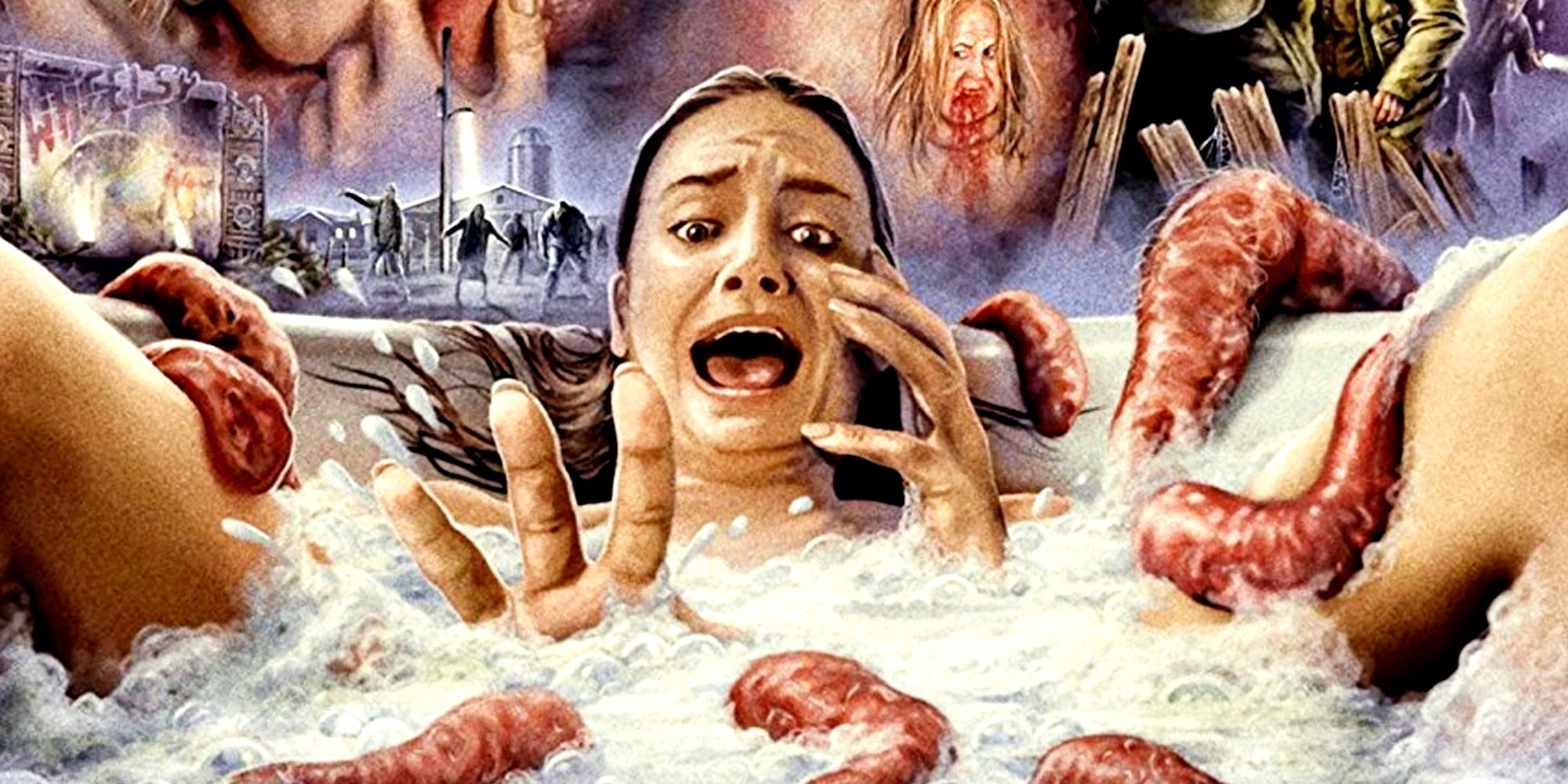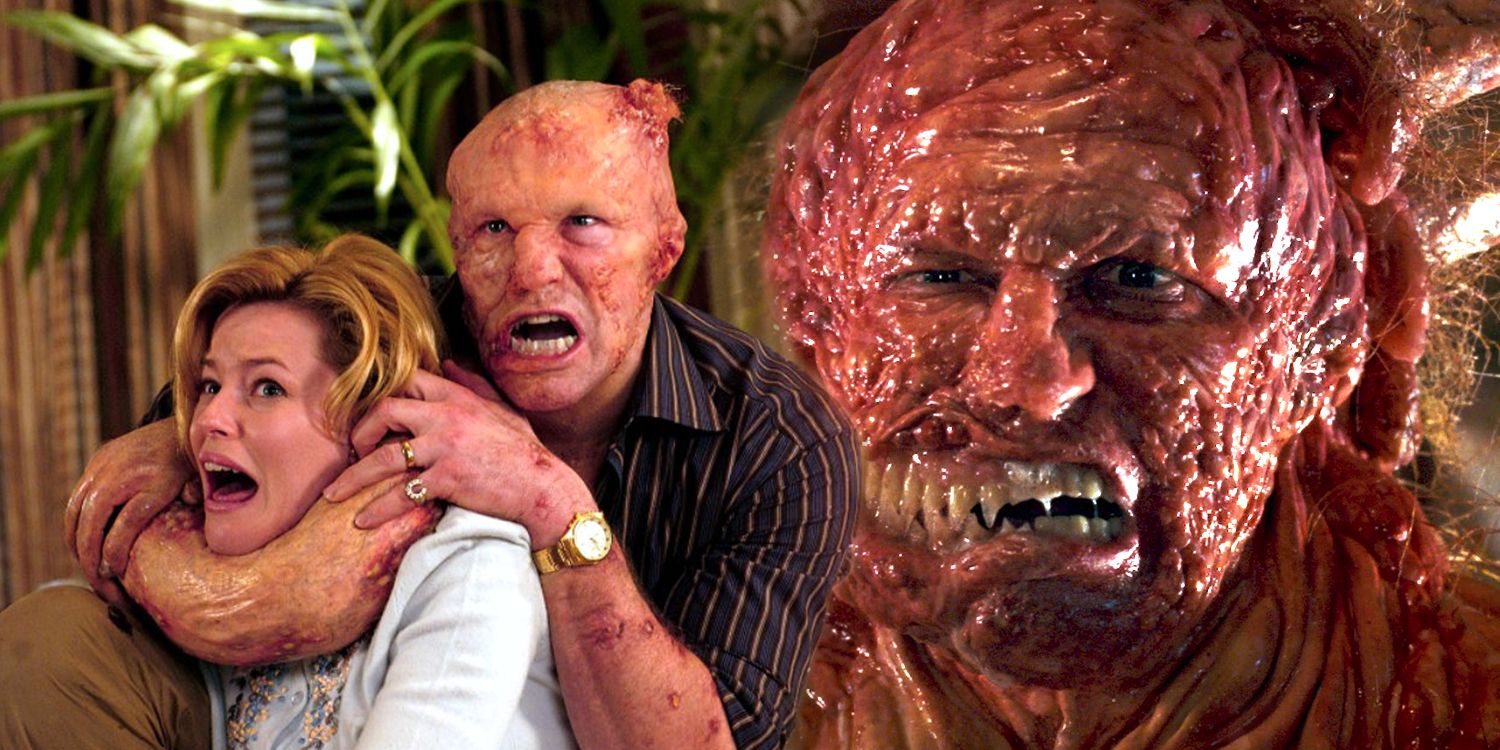James Gunn's 2006 sci-fi/horror movie, Slither, might not have done well at the box office, but its enduring charm has won over fans, establishing it as both a cult classic and one of the last great B-horror movies to be made.
Slither seems primarily inspired by Night of the Creeps at first glance, another B-horror movie and horror/comedy mash-up that released in 1986. Gunn was directly inspired by several other movies to make Slither, and paid homage to genre classics such as John Carpenter's The Thing and David Cronenberg movies Shivers and The Brood. At its core, Slither is wholly unique because of its B-horror roots, which have fallen under the radar and have developed something of an unsavory reputation. Instead, "elevated" horror movies such as Hereditary and Midsommar dominate the modern narrative as to what is "good" within the genre. Slither featured a talented cast, with actors like Nathan Fillion, Elizabeth Banks, and Michael Rooker stepping into leading roles. This was part of why the movie did end up becoming a cult classic, and still has a devoted fanbase over a decade after its release, but wasn't the only reason.
B-horror movies, such as The Stuff and The Blob, aren't often tackled by modern genre filmmakers. Smaller, independent studios like Lloyd Kaufman's Troma Entertainment have dabbled to varying degrees of success throughout the past decades, but traditionally, B-horror is relegated to mere references and nostalgia. They're often not the first choices to be remade, although Troma's The Toxic Avenger was announced to be getting a remake. Likewise, there's also not a lot of directors who approach B-horror as a viable property to add original stories into. Given their reputation as being "B-grade", or of lesser quality, B-horror movies capitalize on the "so bad, it's good" aspects of the horror genre, and have a built-in audience. As proven by Slither, they can even feature quality storytelling, phenomenal effects, and great acting when approached correctly. So why is Slither one of the last good examples, and why is B-horror seemingly a dying breed?
Slither is a love letter to numerous B-horror movies, and was likely Gunn's attempt to show how they can not only be well crafted and "good"—which is always relative—but also possible as a modern horror sub-genre. B-horror movies represent a wealth of untapped potential. Where many movie audiences and horror fans tire of supernatural horror movies, hauntings, and slasher movies with un-killable villains, B-horror highlights an area that's not fully realized. Because it has a reputation for being schlocky, humorous in non-politically correct ways, and often features narratives that are entirely disconnected from reality, B-horror is a great area for further exploration simply because it hasn't been done to death. Other popular horror sub-genres are often profitable, but can be tedious and boring — there's only so many times the wheel can be reinvented. Originality, in that sense, is a hallmark of B-horror; the stories are fantastical, often feature wild alien lifeforms, body horror, and elements that aren't often seen in modern horror movies from major studios.
Slither proves that a combination of good storytelling, a strong script, talented actors, and incredible special effects—likely practical, which is usually a horror fan's preference—can make a B-horror movie enjoyable for more mainstream crowds. It's possible that Slither's poor box office performance kept it from becoming anything more than a standalone film, but many B-horror movies don't reach franchising anyway. Slither was made on a respectable budget of $15 million, but only amassed a gross of $12.8 million at the box office — this labeled it a flop. Gunn has gone on to have an incredible career after Slither, which has earned him clout amongst his peers. Gunn's willingness to explore where others won't, which was also seen through his involvement with the gory superhero horror movie, Brightburn, along with his reputation could offer B-horror another chance to shine under his guidance.
Gunn doesn't have to tackle the next great B-horror movie himself—he's already made Slither—but since he knows how it can be done, he could serve alongside an emerging talent or even entirely new director to usher in whatever comes next. B-horror movies and sci-fi horror, which never ceases in popularity, have a lot of overlap potential and might show a way to dip one's proverbial toes in the water. Treading carefully might be the best route, but remakes like The Toxic Avenger getting a green light from major studios proves there's lingering interest and always has been.


